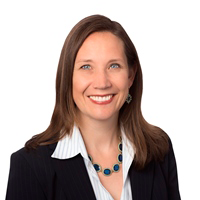District Court Judge

Pope County
View state court bio
Contact with Chambers
• Preferred method to contact chambers: Email.
• To whom may attorneys direct scheduling/logistical questions? Court Reporter
• To whom may attorneys direct substantive questions? Law Clerk
• Set forth your practices and procedures for scheduling motion hearings. Contact court administration.
• Identify any type of motion for which you do not require a hearing. Default matters, such as probate, or uncontested matters with stipulation.
• Do you accept telephone calls from attorneys to rule on discovery disputes that occur during depositions? No.
• How much time do you allot for motion hearings? 30 minutes, unless additional time is requested.
• Set forth your practices and procedures with respect to attending a hearing by telephone or video conference. Hearings are noticed as remote or in-person. In general, evidentiary hearings are in-person.
• Set forth your practices and procedures with respect to discovery motions. The court follows scheduling orders and the rules of practice.
• Set forth your practices and procedures with respect to stipulations of the parties, including stipulations for protective orders. The court will review, and if appropriate, sign a stipulated protective order submitted.
• Do you have any particular requests or procedures relating to requests to amend the scheduling order? No.
• Set forth your practices and procedures with respect to default proceedings. These are set by Court Administration.
• Set forth your practices and procedures with respect to handling emergency motions. These are handled by the rules of practice.
Pre-Trial Procedures
• Set forth your practices and procedures with respect to the submissions of additional legal authority or other materials at or after oral arguments. Allowed only on a case by case basis.
• Describe your preferred procedures for pretrial settlement conferences, including the timing of such conferences, persons who must attend, whether persons may attend by telephone or video conference, and how you participate in settlement discussions. Pretrials are generally done close in time to the trial date. All parties shall attend. These are done by Zoom currently. I generally do not participate in settlement discussions.
• Set forth your practices and procedures with respect to attorney’s use of technology in the courtroom and during trial. They can use it if they know how and try it before trial.
• Do you permit parties to bifurcate oral argument so different attorneys address different legal issues? Yes.